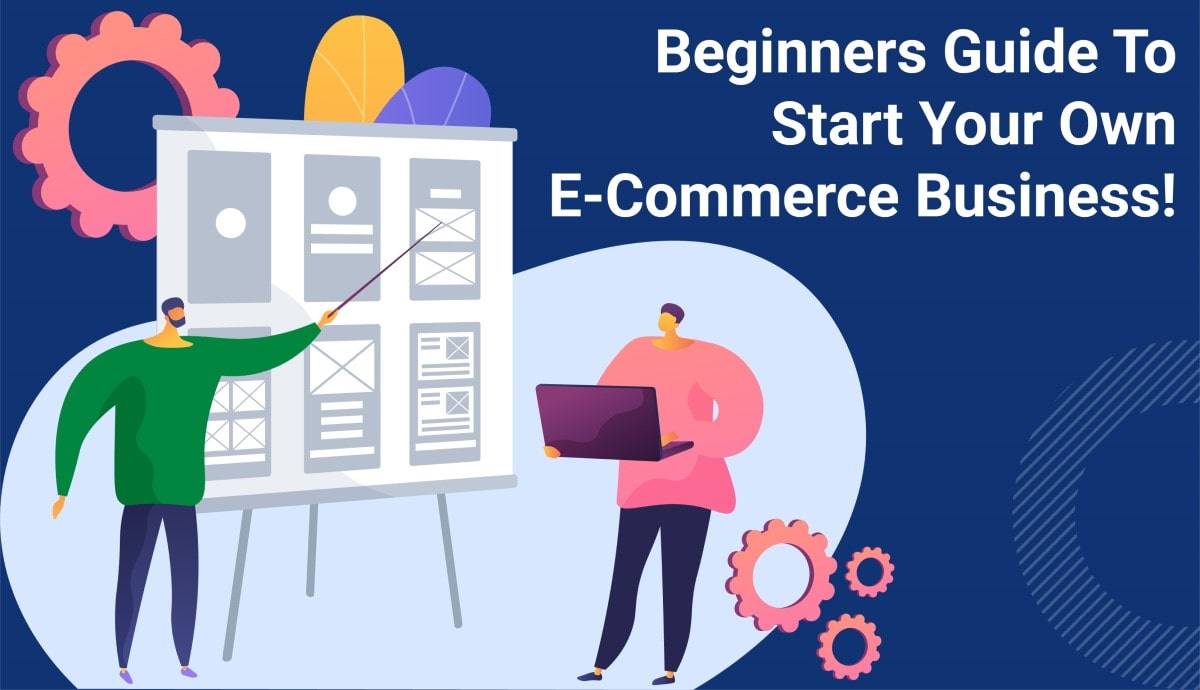Given the current market situation, it is nearly impossible to imagine life without e-commerce. Nowadays, you can buy and sell anything with a touch of a button from the comfort of your home. The best part is: It’s available 24/7!
This guide will show you how to start your own e-commerce business and its advantages.
Table Of Contents
What is E-commerce?
What are the advantages of E-commerce?
How to start your E-commerce business in 5 Steps?
Conclusion
How can we help you?
What is E-commerce?
E-commerce is a business model in which you can purchase and sell products and services online. There are no budget restrictions or product limitations. It can be used anywhere in the world and at any time. because there are no time limits or boundaries.
E-commerce helps everyone from independent freelancers and small businesses to the largest corporations.
The most common E-commerce model is B2C (Business to Consumer); other examples include B2B (Business to Business) and C2B (Consumer to Business).
What are the advantages of E-commerce?
A few advantages of E-commerce are as follows:
1. Lower Costs
- Going online eliminates the need for a physical store, reducing the company’s fixed costs.
- Since most e-commerce is computerized, lesser employees are needed for your business.
- These cost reductions result in lower prices and higher profits for your company.
Determine your GST liability by using our free GST calculator!
2. Unlimited Availability:
- Your company will be open 365 days a year, 24 hours a day, 7 days a week.
- E-commerce websites can go online at any point in time. As a result, the retailer receives a larger number of orders.
- From the customer’s point of view, a store that is “always open” is more convenient.
3. Overcome Geographical Challenges:
- If you have a physical store, the location in which you can sell your products or services is limited. When you have an e-commerce website, the world is your playground.
4. Worldwide Acceptance:
- Due to the vast acceptance of E-commerce, you can easily expand your business.

How to start your E-commerce business in 5 Steps?
We have made a beginners guide to start your own E-commerce business in a few simple steps:
1. Selecting your E-commerce business name
- Once you’ve decided on a business idea, the next step is to choose a name for your company. You’ll want a name that is both unique and clearly defines your company.
Check the availability of your company name
2. Registering your E-commerce business
The most important step in starting an e-commerce business in India is to register your company. You should keep the following steps in mind:
- Make sure you have obtained your Permanent Account Number (PAN) and Digital Signature Certificate (DSC) before applying for your Director’s Identification Number (DIN).
- After you’ve obtained your DIN, you must apply to the Registrar of Companies (ROC) to check the availability of the name you’ve selected for your business.
- After obtaining confirmation of the proposed company’s name, you may incorporate it.
- Application of GST registration, Shop and Establishment License and a Professional Tax License (PT).
- Finally, apply to open a Provident Fund (PF) and also apply for Certification of Company Incorporation, where your company will be legally registered under the Companies Act, 2013.
You can legally start your e-commerce business after you’ve completed the paperwork requirements to register your business.
Related read: Easy Guide To Trademark Registration Process In India
3. Building your website using any e-commerce platform
- The next step is to build a website for your company.
- This website, just like a physical store, would be the first thing your customers see.
- The customers will use it to select and order your products or services.
- You can create your own website from scratch.
- You can also use a pre-built e-commerce platform like WordPress or Wix.
4. Shipping and distribution for your e-commerce business
- One of the important steps in an e-commerce business is logistics.
- The process of shipping a product from your warehouse to a customer’s address is known as logistics.
- To help you handle the storage and transportation of your goods; you will need to hire a distributor.
5. Promotion of your e-commerce business
- Now that you’ve prepared your goods or services and listed them on your website, you’re ready to start serving your customers.
- In order to attract potential online buyers, you’ll need to market your e-commerce business effectively.
- Instagram and Facebook are perfect examples of social media applications that can be used as a marketing tool.
Related read: Government Schemes Introduced To Boost MSME In 2021
Conclusion
Starting an e-commerce business, whether or not you already have a store or business, is simple.
For e-commerce businesses, there are many opportunities for long-term revenue growth and high returns.
To increase its profitability and popularity, the company must grow and adapt to new market trends and consumer needs.
How can we help you?
We’ll take care of the regulations and compliance procedures while you focus entirely on your E-commerce business. The following are some of the services we offer:
- Incorporation of your E-commerce company.
- Registration of Digital Signature Certificate (DSC) and Director’s Identification Number (DIN).
- GST Registration.
- Application of Professional Tax License (PT).
- Registration of Provident Fund (PF).
- Book-Keeping and Accountancy.
- Trademark Registration
- MSME Registration
It’s time you shift your business online!
